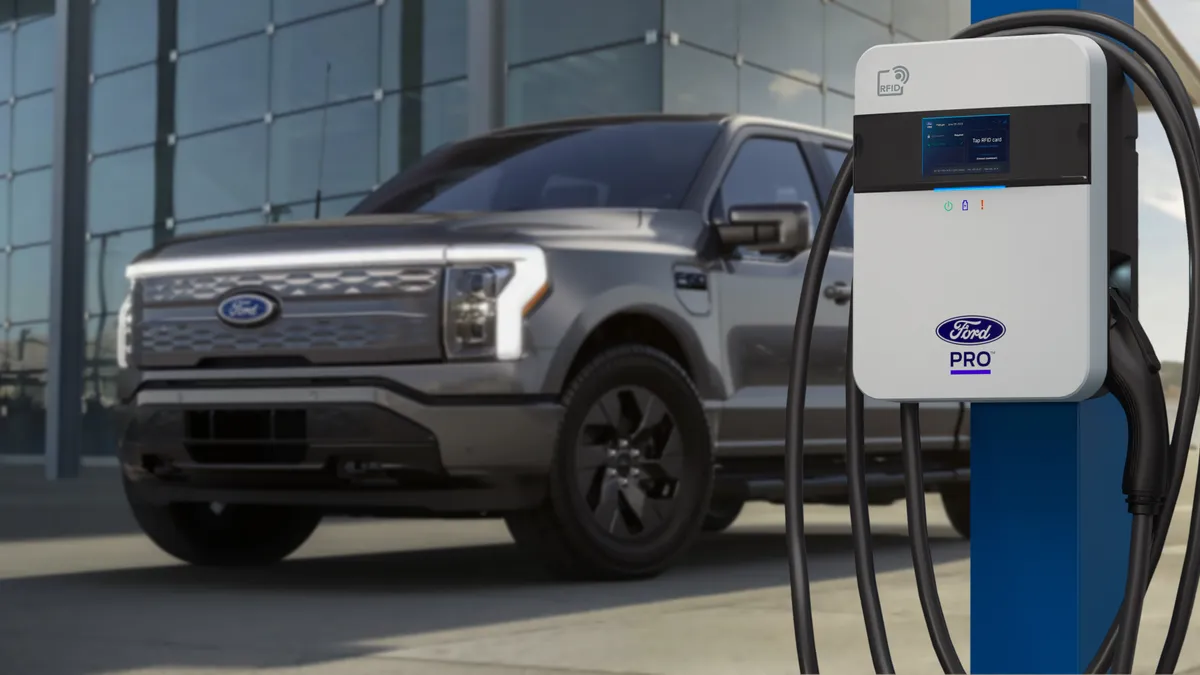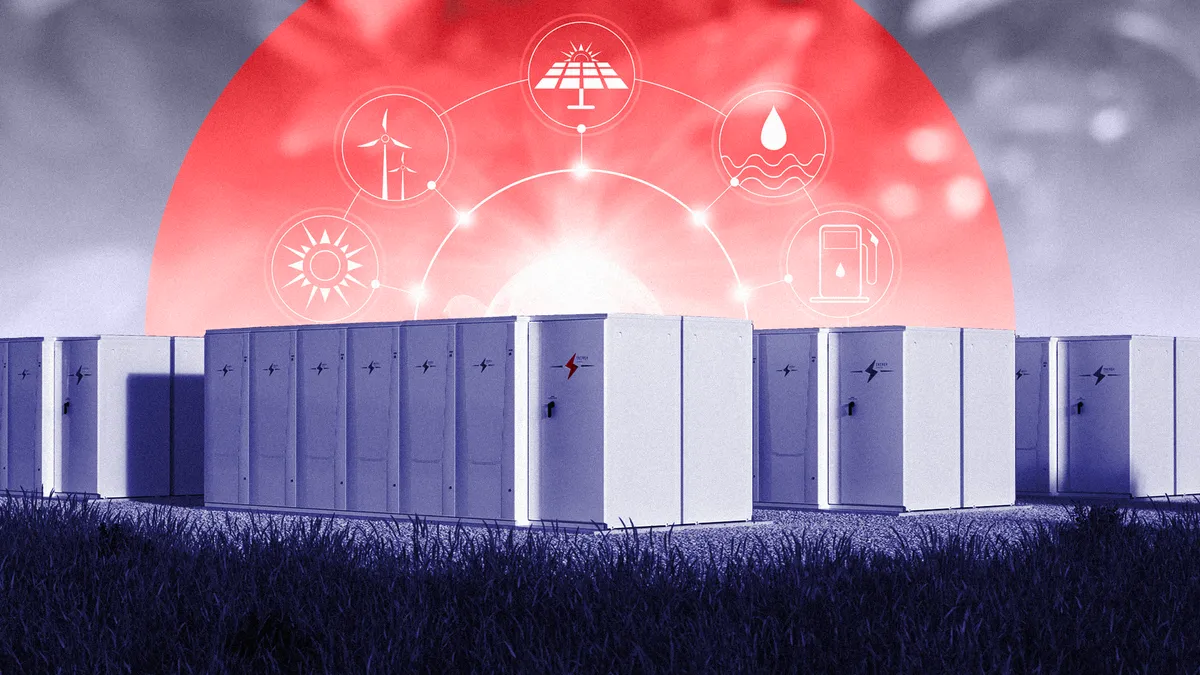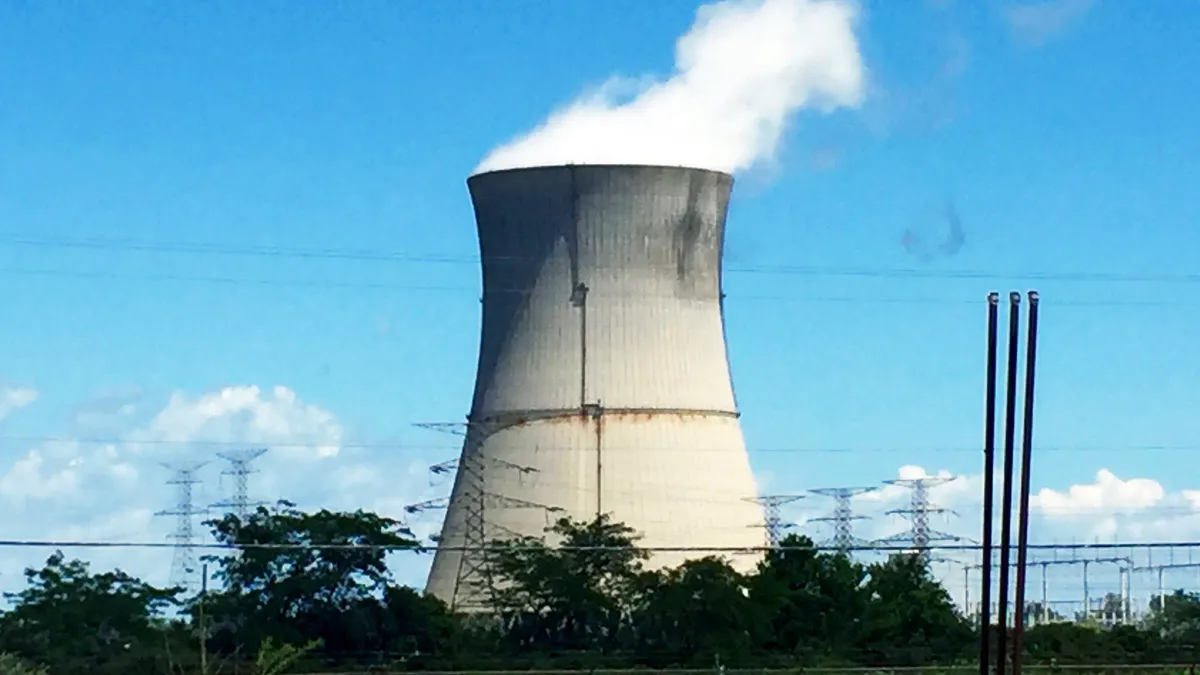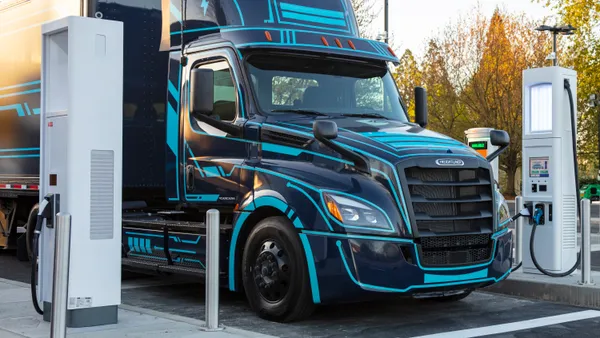Xcel Energy and Ford Motor Co. have partnered to assist business customers in transitioning their fleets to utilize electric vehicles. The companies on Tuesday announced plans to deploy 30,000 EV charging ports for business customers by 2030.
The “30x30” initiative will connect Ford Pro, a commercial division of the automaker, with Xcel’s electric vehicle supply infrastructure, or EVSI, program, and will launch next year in Wisconsin and Colorado.
“We know electrification can be complex for businesses,” Ford Pro CEO Ted Cannis said in a statement. Together with Xcel “we’re creating a new model to help eliminate barriers for businesses in their electrification journey.”
Through the program, Xcel will install the charging infrastructure for business customers that enroll in an approved EVSI program. Most upfront costs will be offset by Xcel, and Ford Pro will provide charging equipment and post-installation customer service and support, the companies said.
Xcel and Ford also plan to analyze telemetry data from vehicles participating in the initiative “to promote commercial charging during off-peak times, helping reduce electric grid emissions and potentially saving customers money,” the companies said. “This novel approach provides energy and utility companies a template for future collaboration.”
Xcel said it will seek opportunities to expand the 30x30 program over the next six years into the other states it serves: Michigan, Minnesota, New Mexico, North Dakota, South Dakota and Texas.
“We are committed to making a real impact on the future of electrification in America,” said Amanda Rome, executive vice president, group president, utilities and chief customer officer at Xcel.
Xcel is working to expand charging options for retail customers as well. In Colorado, the utility has filed plans to develop 460 public direct current fast chargers, either to be owned by the utility or by third parties. The utility in 2020 said it was preparing to serve 1.5 million electric vehicles by 2030 across its eight-state territory.
Utilities are increasingly partnering with automakers to speed the transition to EVs. The National Renewable Energy Laboratory estimated electric transportation could drive a 38% rise in U.S. electricity consumption by 2050.














